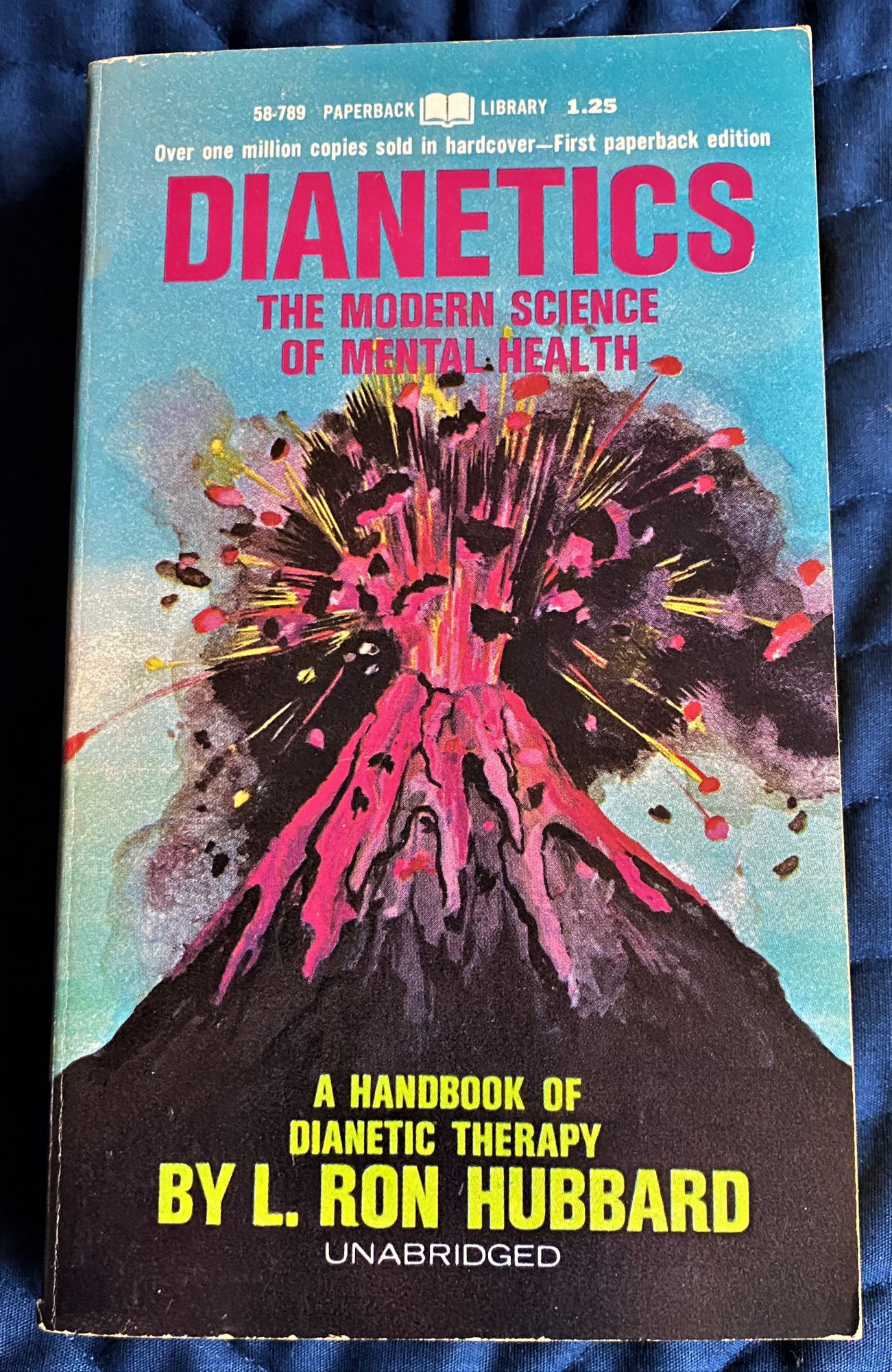The Dianetics Statements
Wiki Article
Some Known Details About Dianetics
Table of ContentsThe Main Principles Of Dianetics 8 Easy Facts About Dianetics ShownFacts About Dianetics Uncovered6 Easy Facts About Dianetics Shown
I couldn't ever before not intend to obtain anything that comes to mind for you- if it was or else, I would not be sitting below with you, doing this. I not just can never ever have a problem, or otherwise want to hear something that enters your mind for you, however I'm totally anxious to know every idea, every thought, every picture or feeling that arises or manifests for you- do not ever assume otherwise, and if somehow you do, please simply let me recognize! Occasionally, you might have a thought, and picture, concept or case pop up that does not seem to address the concern, or connect to it, yet nevertheless, always do inform me concerning it, and as we proceed, the significance will emerge for you.This is fundamental in the basis of handling, and the subject of this conversation: the standard roles of the counselor and the client: The standard function of the therapist is, as opposed to "basic training", not to control, which means to apply and/or hinder, yet to rather function from the basis of EMPOWERING THE CLIENT.

The Ultimate Guide To Dianetics
John Mcmasters shared this fundamental fact splendidly well in one of his lectures on Power handling, where he clarifies just how he was asked what this "unique knack" was that he had for offering such great sessions; he needed to consider that for a minute, and identified that it was what he had not been doing, as well as what he was doing: he wasn't evaluating, evaluating, computer, or as a matter of fact, producing any ideas, allow alone verbal expressions, after giving the command and while waiting on the computer to finish their solution to their fulfillment; he was, just and only, existing with the PC, and entirely interested.The duty of the counselor, demonstrated; that was his "special knack". I have actually had my very own experience which instructed me this well, really beforehand in the video game. In 1982, having actually lately finished my training and teaching fellowship on New Era Dianetics, I was running this on a PC, and there was a factor in the session where (being a bit wet behind the ears not yet having several hours under my belt as a professional auditor) the computer seemed to be "taking as well lengthy" to share anything great site verbally after I provided him a command.
This trick became the most beneficial payment that John ever made to the subject of treatment or auditing (Dianetics). In my simple viewpoint, it is the best contribution that anyone has actually ever made to these subjectsthe application is entirely non-judgemental, non-evaluative, and lacking any tip, advice or opinion.no preconceived program for individuals, or 'levels' that they should do
In Scientology we prided ourselves on not evaluating for people. All that really implied was that the auditor did not Vocally evaluate for the PC in session.
Rumored Buzz on Dianetics

Any person that had actually ever seen John audit can not aid however notice a special top quality in his auditing."The customer's basic function is to be there with the objective of relocating the direction of their spiritual objectives, and to freely and completely share and experience whatever manifests for them in responding to the inquiries and performing the guidelines in the processing.
This is something to process as needed. Also, individuals frequently have prior experience and/or indoctrination in auditing/processing which, in some methods, and to some degrees, really misleads them into mindsets, ideas and habits patterns that stop the full awareness of these functions, and so they will have a tendency to prevent the expressing of what comes to mind, as in the examples given above - Dianetics. * The first, and perhaps leading instances of mis-indoctrination bring about much less than totally smooth and efficient sessions, can be discovered in specific elements of the training routines, or "TR's":"TR's" are typically a person's first, or a minimum of early, experience in Scientology, and while I will take place to clarify what I view as the problems in idea and practice, nevertheless, often tend to be substantially healing, done as they are provided (Hubbard firmly insists that "TR's are not refining, they are educating", however factually, they are both handling AND training)
Alan Walter made comparable monitorings, and enhanced on these with his "Presence Processes". There is no "failing", and no denial of the fact of this being processing. The focus, as it should be, gets on experiencing the other person's visibility. All the symptoms which obtain a "fail" in doing "TR-0" are just the being's initiatives to withstand the other individual's existence, and instead of being pestered and badgered with "Flunk", which enforces "failure!" on the being, one just needs to be motivated to "stick their feet in the water a little deeper", to increasingly refurbish their capability and readiness to completely share and experience "being here", or "existence", with others.
Dianetics Fundamentals Explained

Report this wiki page